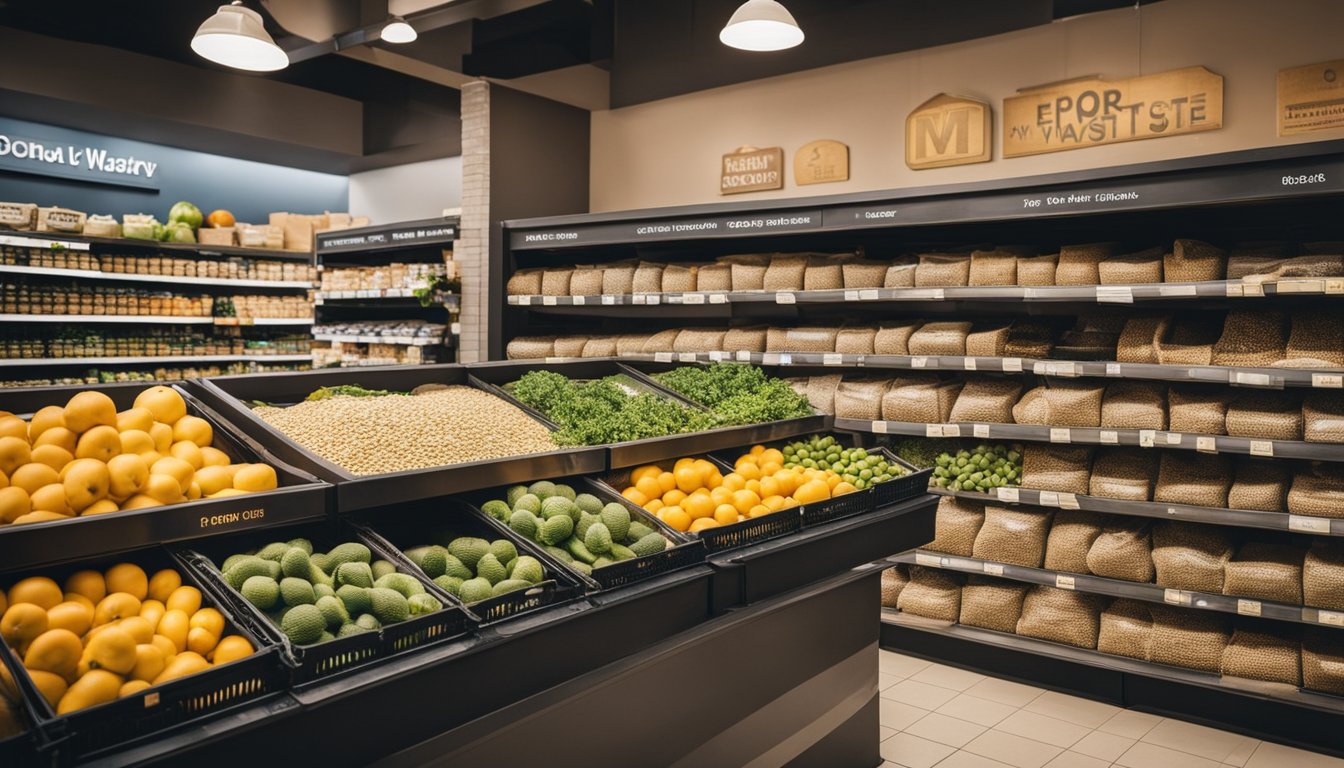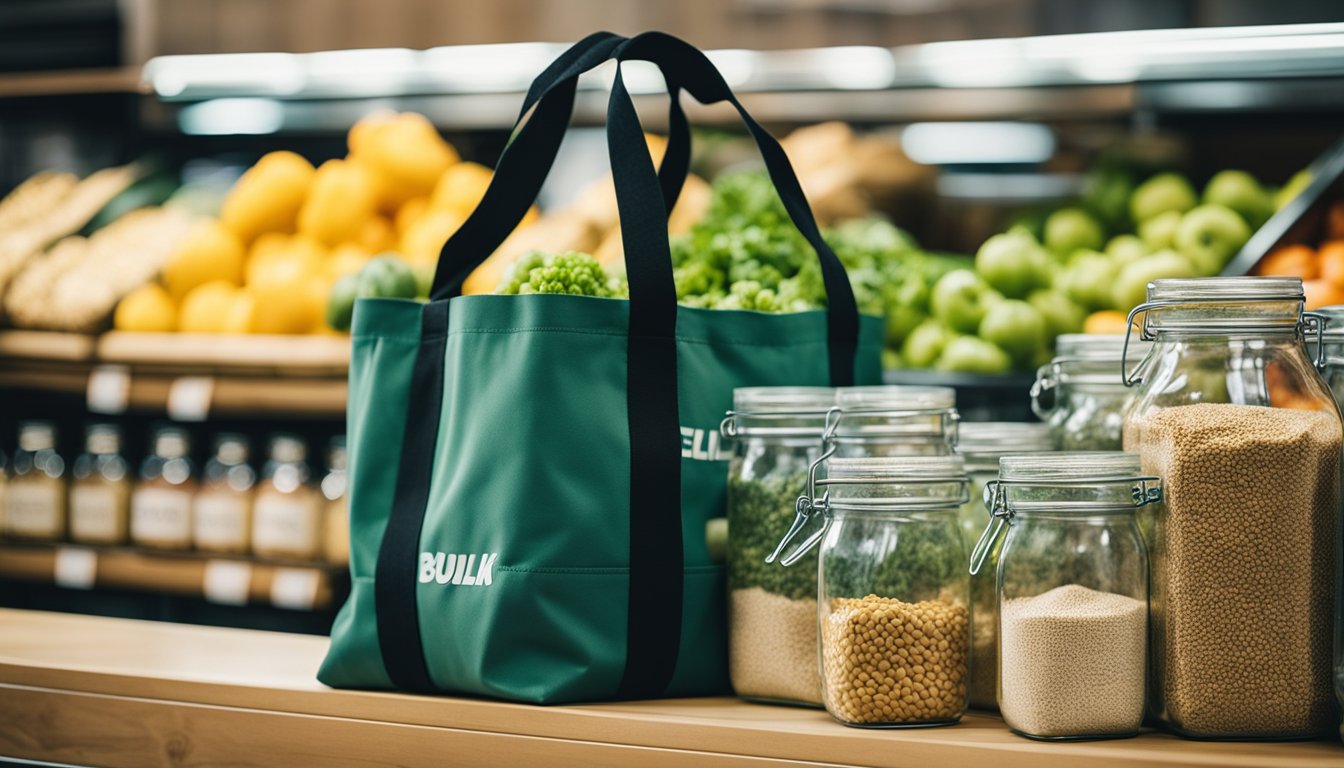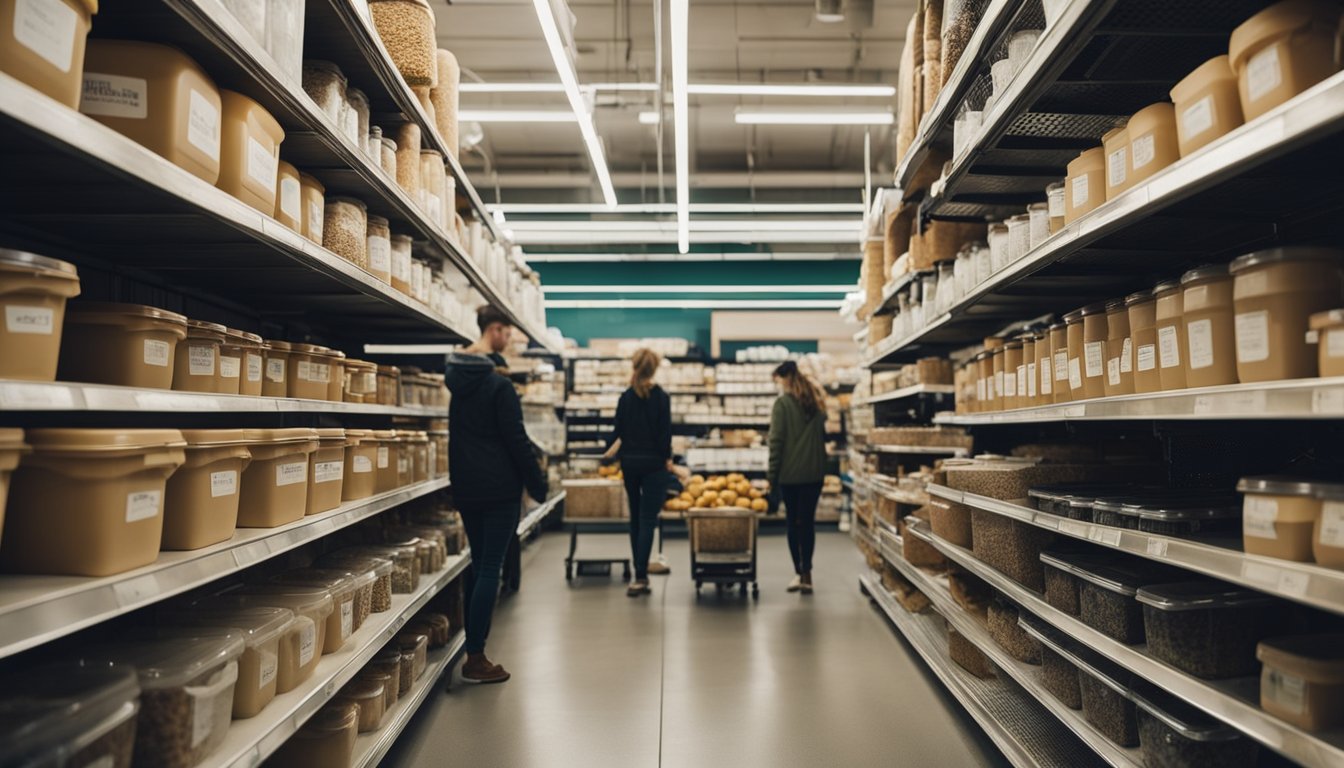Late updated: 25 Jul 2024 09:07
Written by: Sarah Hollister
Zero Waste Shopping Tips For Beginners: Simple Steps for a Greener Lifestyle
Embarking on a zero waste shopping journey may seem daunting, but it's an empowering step towards a more sustainable lifestyle. By incorporating zero waste principles into our daily shopping habits, we can significantly reduce the amount of waste we produce. From using reusable containers to choosing packaging made from metal, glass, or paper, these small changes can make a big difference.

When starting out, it's crucial to adopt easy and impactful habits. Utilising reusable bags, bottles, and containers can drastically cut down on single-use plastics. Additionally, shopping in bulk allows us to buy only what we need, reducing both food waste and unnecessary packaging.
The key to successful zero waste shopping lies in preparation and mindfulness. By planning our shopping trips, bringing along a zero waste kit, and opting for seasonal and local products, we can make more eco-friendly choices. Let's take these steps together and embrace a lifestyle that aligns with our values.
Key Takeaways
- Small changes can make a big difference in reducing waste.
- Utilising reusable items and buying in bulk are effective strategies.
- Preparation and mindfulness are essential for zero waste shopping.
Fundamentals of Zero Waste
In tackling zero waste shopping, it is essential to understand the core principles that guide a zero-waste lifestyle. The foundation of these principles can be understood through the concept of the Five R’s of Zero Waste.
Understanding Zero Waste
Zero waste is about managing resources so that no waste ends up in landfills, incinerators, or the environment.
The term refers to a set of practices aimed at reducing and eventually eliminating the waste we generate. It is not just a method but also a mindset that encourages us to consider the life cycle of everything we use, from production to disposal.
The concept supports a more sustainable, cyclical approach to consumption.
Restaurants, businesses, and households all play significant roles. The EPA and other organisations stress the need to reduce our waste footprint, compelling us to adopt behaviours that conserve resources, reduce emissions, and promote a healthier planet.
The Five R’s of Zero Waste
The Five R’s of Zero Waste provide a practical framework for achieving our waste reduction goals. These guiding principles are: Refuse, Reduce, Reuse, Recycle, and Rot.
-
Refuse: This is the act of saying no to items that generate waste, such as single-use plastics. By refusing unnecessary items, we cut down potential waste at the source.
-
Reduce: Minimising what we need and consuming less significantly reduces waste. This involves making mindful purchasing decisions and choosing items with minimal packaging.
-
Reuse: This principle encourages us to use items multiple times rather than discarding them after a single use. Choosing reusable water bottles, bags, and containers can greatly diminish our waste output.
-
Recycle: Properly recycling materials like paper, glass, and metal helps divert waste from landfills. It is essential to understand what can be recycled in our local communities to ensure effectiveness.
-
Rot: Composting organic waste such as food scraps and yard waste returns nutrients to the earth, reducing the amount of waste that ends up in landfills. Composting can also help improve soil health and reduce greenhouse gases.
These principles form the foundation of zero waste and can guide us toward a more sustainable lifestyle.
Practical Zero Waste Shopping

Embracing zero waste shopping begins with making mindful choices about the products we buy and the ways we shop. In this section, we will explore effective strategies for grocery shopping with minimal waste, replacing single-use items with sustainable options, and adopting food practices that cut down on waste.
Zero Waste Grocery Shopping
Grocery shopping can be a significant source of waste, but there are many ways to minimise it. Shopping with reusable bags, containers, and produce bags is a great start. Many stores now offer bulk food sections where we can bring our own containers to fill with items like grains, nuts, and spices.
When shopping, prioritising fresh produce and bulk items over packaged goods reduces plastic waste. Visiting farmers' markets is another excellent option, where we can buy seasonal, often unpackaged foods directly from local vendors. By planning our meals and making a comprehensive shopping list, we can avoid over-purchasing and reduce food waste.
Finding Alternatives to Single-Use Products
Single-use items are a major contributor to global waste. We can replace these with sustainable, reusable alternatives. For example, carrying a reusable water bottle and coffee mug prevents countless plastic bottles and cups from ending up in landfills.
When it comes to storage, glass jars and reusable containers are much better options than plastic bags and cling wrap. For hygiene products, considering items like bamboo toothbrushes and metal razors can further decrease reliance on single-use plastics. By gradually integrating these replacements into our daily routine, we significantly reduce waste output.
Sustainable Food Practices
Adopting sustainable food practices is crucial for a zero waste lifestyle. Shifting towards a plant-based diet can dramatically lower our environmental impact. Eating more vegetables and fewer animal products like meat helps reduce pollution and conserves water resources.
Ensuring that we eat what we buy is equally important. Proper meal planning prevents food waste, as we only purchase what we need. Using leftovers creatively by incorporating them into new meals also helps. Seafood and meat can be especially wasteful if not stored correctly, so freezing surplus portions can help extend their shelf life.
Incorporating these small changes into our shopping and eating habits makes a significant difference in reducing waste and preserving our environment.
Frequently Asked Questions

In zero-waste shopping, it's crucial to understand how to get started, reduce waste effectively, and recognise the benefits of a zero-waste lifestyle. Here are the answers to some common questions that you might have.
How can one initiate a zero-waste lifestyle in the household?
To initiate a zero-waste lifestyle at home, start with simple steps. Replace single-use items with reusable alternatives such as cloth napkins, stainless steel utensils, and glass containers. Composting organic waste and recycling correctly are fundamental parts of this shift.
What strategies can be implemented for reducing waste when shopping for food?
When shopping for food, bring your own reusable bags, containers, and produce bags. Purchase bulk items using these containers and avoid products with excessive packaging. Consider buying fresh, unpackaged produce and shop at local farmers' markets.
What are essential products to consider for a zero-waste home?
Essential zero-waste products for the home include reusable water bottles, cloth bags, beeswax wrap for food storage, and stainless steel straws. In the kitchen, glass jars for bulk storage and a compost bin are invaluable. Personal care items like bamboo toothbrushes and bar soaps can also reduce waste.
How does adopting a zero-waste lifestyle benefit the environment?
Adopting a zero-waste lifestyle helps reduce landfill waste, cuts down on plastic pollution, and conserves resources. By reusing and recycling effectively, we lower our carbon footprint and contribute to a healthier planet. The reduction in waste production also supports sustainable living practices.
Can you outline a beginner's guide to zero-waste living?
A beginner's guide to zero-waste living involves understanding the 5 R's: Refuse, Reduce, Reuse, Recycle, and Rot. Begin by refusing unnecessary items and reducing your consumption. Reuse items as much as possible, recycle correctly, and compost organic waste. Slowly incorporate more zero-waste habits into daily life.
What are the core principles that guide the zero-waste movement?
The core principles of the zero-waste movement are encapsulated in the 5 R's: Refuse what you do not need, Reduce what you use, Reuse by finding new purposes for items, Recycle what cannot be refused, reduced, or reused, and Rot the rest through composting. These principles guide responsible consumption and waste management.
